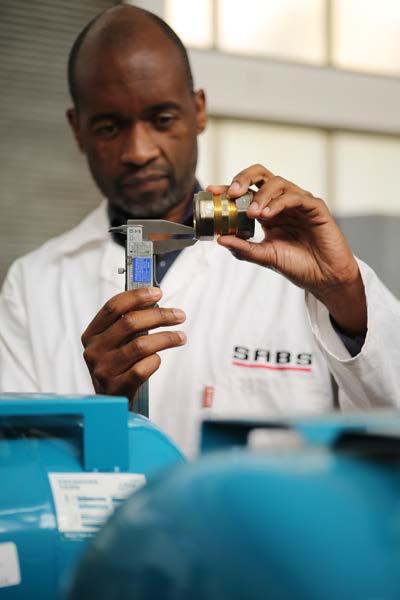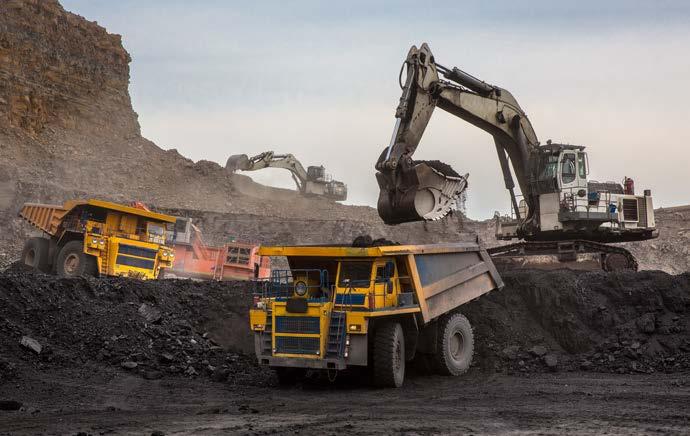
4 minute read
Small-scale embedded energy generation: A part of SA’s smart future
‘In the first quarter of 2019, the economy contracted by 3.2%; with energy making a negative contribution to the GDP. Key factors behind the decline were load shedding and the high electricity price. Faced with an old generation infrastructure and an Eskom in crisis, we must invest in new generation capacity,’ said Minister of Mineral Resources and Energy, Gwede Mantashe, at the 2019 Windaba conference.

square metre a year, especially along the coastal areas where there is a lot more wind available. Additionally, almost 100% of land available is able to produce between 1000 kWh and 1300 kWh a year using solar energy,’ Osborne added.
Osborne believes that South Africa should be exploring small-scale embedded generation, particularly because the price of electricity will only continue to climb.
‘The ever-increasing cost of electricity is especially impacting farmers as they pay the highest tariffs, but they also are the ones who have the most abundant space and land available to install renewable energy on their properties. In the future, more and more farmers will be installing renewable energy on their farms. Next on the tariff list are the residential and commercial sectors. I believe that you will see more homeowners and businesses installing renewable energy technology on their roofs going forward, since skyrocketing electricity prices will make renewable energy a very viable option for these markets,’ he said.
He notes that the National Development Plan foresees that by 2030, at least 95% of the population will have access to electricity be it grid or off-grid.
‘I t is evident that the traditional power delivery model is being disrupted by technological developments related to new systems. Smallscale embedded generation through wind; biomass, biogas and municipal solid waste possess great potential. We must invest in that space,’ he added. Devin Osborne, CEO of Thula Moya, applauded the Minister’s recognition of the potential held by smallscale renewable energy generation. He encouraged government to not only invest in this, but also make it easier for households and businesses to become smallscale power producers.
Thula Moya is a family-run business focussed on increasing the adoption of renewable energy and the exclusive local dealer of the Archimedes Windmill (AWM), a silent wind turbine suitable for residential and commercial sector use.
‘South Africa is particularly well suited to wind energy. In fact, we could be producing over 2000 kWh per
‘This adds up to an additional 29 000MW of electricity that needs to be produced, of which 20 000MW has been allocated to renewable energy. To achieve this, the country has committed to start building smart, sustainable cities. This requires the adoption of technologies that will enable our cities to be part of the renewable energy revolution. Installing a single AWM at a residence or business, for instance, can produce roughly 95kWh to 250 kWh a month, depending on location. This can account for over 25% of an average household’s electricity needs, adding between 800kWh and 2000kWh a year, depending on the geographic location,’ Osborne explained.
To maximise energy production, Thula Moya recommend that the turbines be linked to solar PV systems, which could help take companies and households off the grid entirely.
‘With South Africa being rich in renewable energy sources such as wind and solar and with these already supplying electricity at a cheaper rate than that of coal, small-scale embedded generation should be a no brainer’, Osborne concluded. n
SABS - WORKING WITH AND FOR INDUSTRIAL COMPANIES AND GOVERNMENT




The South African Bureau of Standards supports the industrialisation effort of the Department of Trade and Industry. SABS is a founding member of the International Organisation for Standardisation (ISO). SABS has an established network of national, regional and international partners that develop technical solutions adopted as South African National Standards (SANS), this in return enables business and government to:
Improve the quality of products and services Enhance competitiveness and access to markets Ensure that procurement of products and services meet quality standards
SABS provides services to assist the implementation of best practice solutions and achievements of quality products and services:
More than 7000 South African National Standards Testing services for a diverse range of products
of companies to management system standards of products and the application of the SABS Mark Scheme Training of management and employees on implementation of SANS Consignment Inspection Services
Verification to local content requirements
Local production and content is an IPAP initiative aimed at stimulating the manufacturing industry to improve South Africa’s economic performance and increase job creation. All suppliers in the designated sectors will have to meet the set minimum local content requirements if they are tendering for goods, works and service contracts within the public sector










